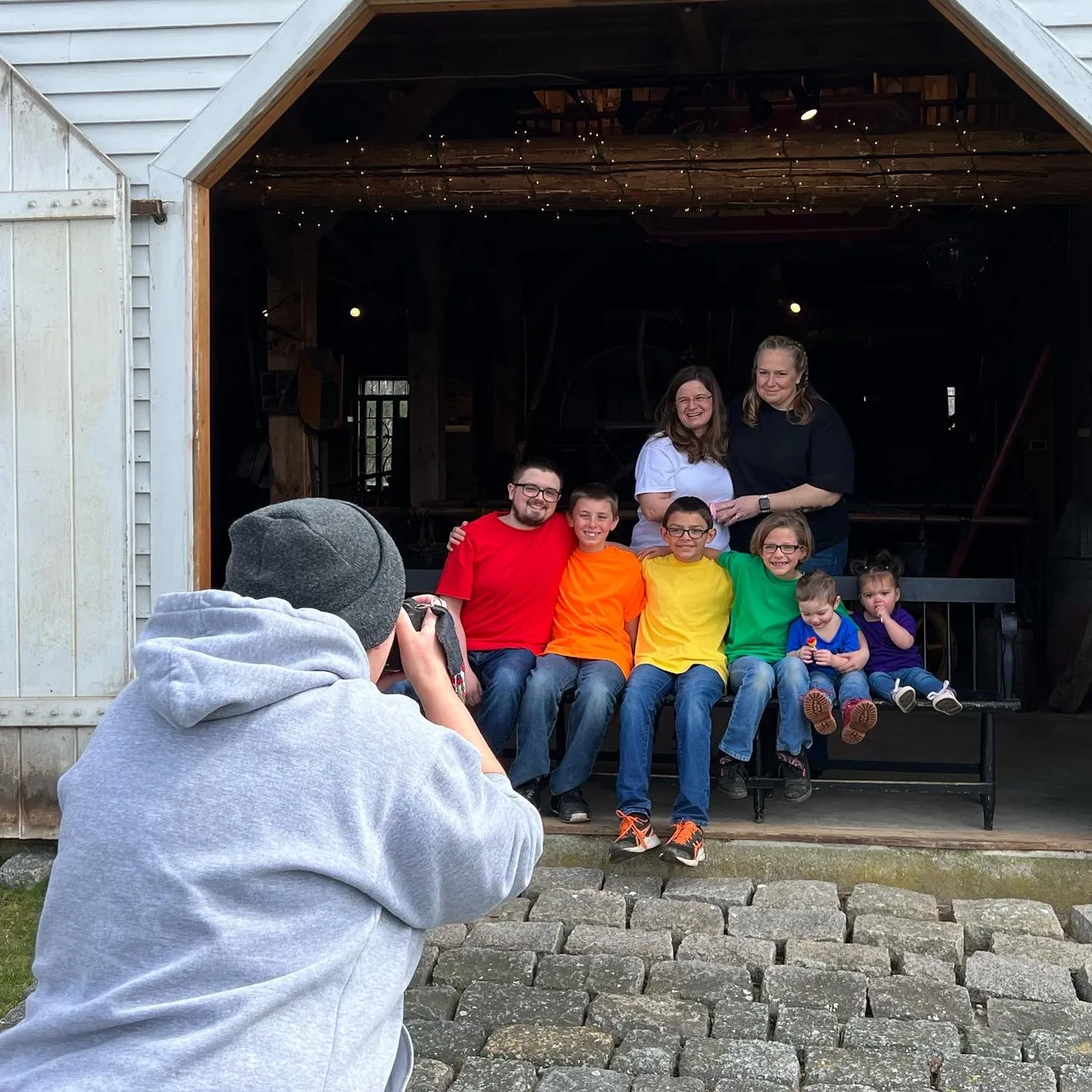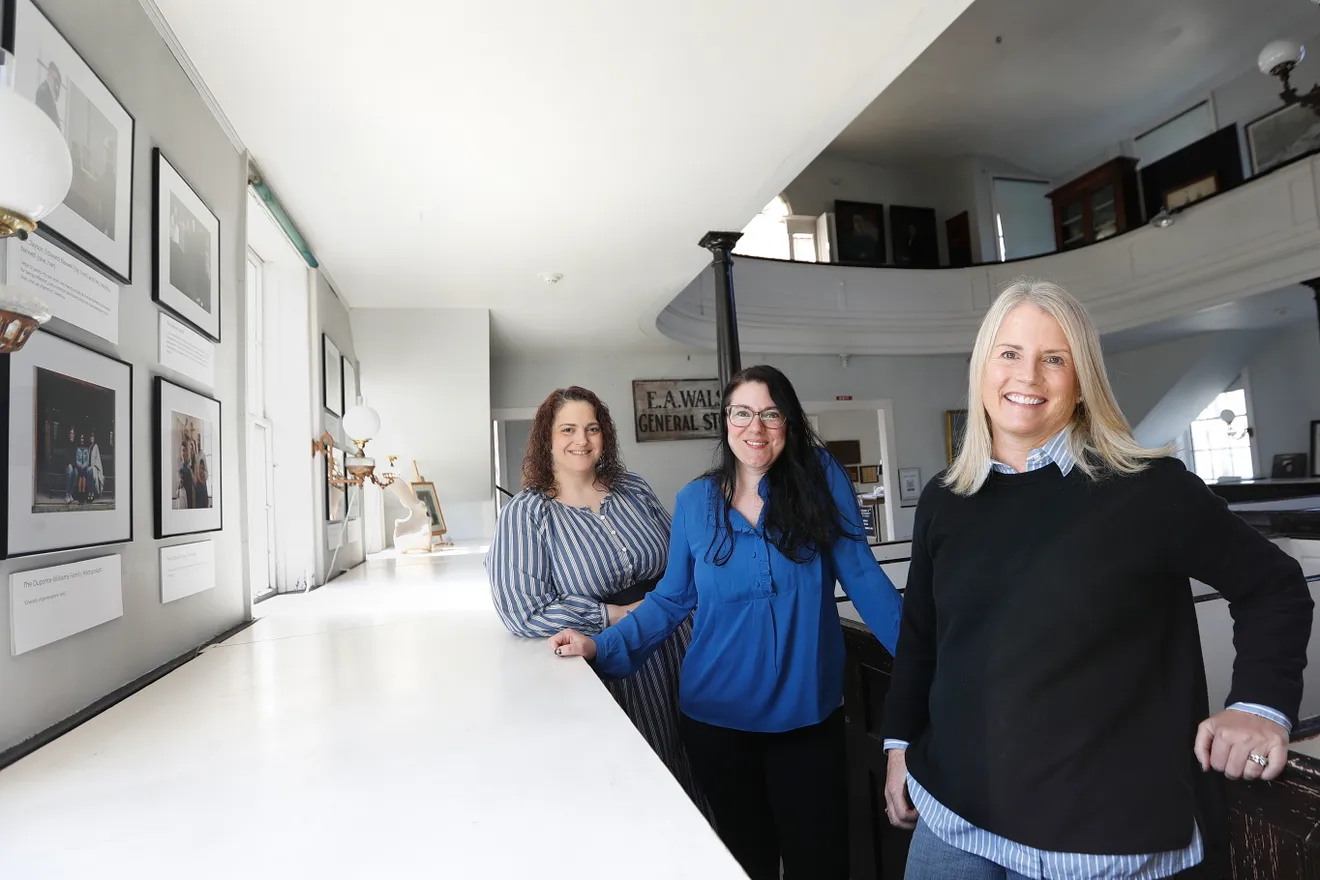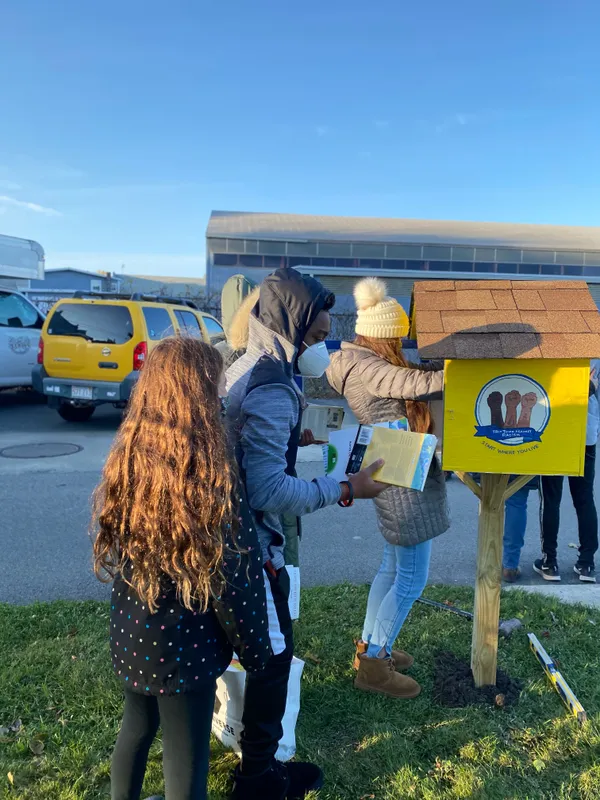TTAR's 2023 plans include affinity groups, fundraising and more.
Matthew Ferreira
The Standard Times - published January 11, 2023
ROCHESTER — Within the affluent SouthCoast towns of Mattapoisett, Marionand Rochester — known collectively as the Tri-Town — some residents suggest there seem to exist two realities: one in which racism is not a problem, and one where it is all too common. As members of interracial families and mothers to children of color, Rochester residents Alison Noyce and Rhonda Baptiste say those in Tri-Town's steep racial minorities more than likely experience the latter, and it can be disheartening when fellow residents express disbelief at accounts of the race-related mistreatment they've been subject to.
"If you don’t have somebody in your life — whether it’s in your family, or friend in your social circle — who experiences these incidents, you may think that they don’t happen," said Baptiste, a founding member and current vice president of the nonprofit Tri-Town Against Racism, or TTAR. "And even if you do, they may not talk about it."
Sharing is caring
Noyce, another founding member and current president of TTAR, is the mother of two adopted sons who are Black and says her family's experience raising them in Rochester and the ORR school district included challenges not seen relative to her daughters, who are white. Baptiste is the mother of a biracial student who attends Old Rochester Junior High School, and says her family's experience has been similar. But before opening up to each other — and then to many more Tri-Town locals — about things like racial slurs directed at their children and rude comments on hair texture, Noyce and Baptiste say they themselves weren't aware of the scope of racism they were experiencing.
"A lot of parents like me ... we're all dealing with it as individuals, kind of isolated. Then as we started talking to more and more people we saw that this is a bigger problem than I think any of us really knew," said Noyce. "So we came together in April 2020 after a group of us said you know what? This is ridiculous. The racism we're all experiencing here is real. This stuff is happening."
"I experienced it with my son at school but I didn’t know Alison was experiencing it too with her kids," said Baptiste. "Before, I wouldn't have necessarily talked to my friends with white children about incidents my kid experiences but now I realize how important it is to be more open about it."
TTAR looking forward to a big year, planning launch of affinity groups
After TTAR came together as a grassroots group in April 2020, Noyce and Baptiste said, members started out with efforts to provide local access to books that feature diversity before beginning to hold public talks and events. Now with almost three years under the group's belt, the two say members are poised to make 2023 a year of major growth.
"We just became a 501(c)3 nonprofit, so now we're going to be able to really go hard on things we've wanted to do, particularly fundraising," Noyce said, also noting the recent launch of a new, professionally-developed TTAR website. Baptiste said funds are currently being collected to support TTAR's Little Diverse Libraries project — one of the group's earliest initiatives that saw the installation of drop boxes in Marion and Mattapoisett, where residents can walk up anytime and borrow books from a collection that's been curated with an emphasis on diversity.
A new initiative TTAR has its sights set on for the new year, Baptiste and Noyce said, is to create affinity groups in which members of the community with shared aspects of identity can engage with each other.
"Affinity groups will be formed to provide a space for community members who are members of groups historically marginalized to meet, socialize, share experiences, explore group identity, cultivate a sense of solidarity and provide resources and supports to one another," Baptiste said. "There will also be an affinity group for white people interested in learning together about privilege, being anti-racist and inclusive."
As for what the other individual groups will be based on, "It will depend on community needs and interest," Baptiste said, "but we think there will be one for BIPOC (Black, Indigenous, and people of color), LGBTQ, and maybe one for interracial families."
A 2021 report commissioned by the Black Teacher Project notes that affinity groups saw a surge in the 2010s and have existed since 1878, the first ones being started by Black teachers in Georgia.
For the record: New database tracks reports of discrimination in Tri-Town
It's one thing to tell people racism and discrimination are happening where they live, but it's another to have data on it. To that end, Baptiste says TTAR launched its discriminatory incident database in early October, inviting community members to fill out a form detailing incidents of discrimination that they experience in the Tri-Town. Now nearly three months in since its launch, Baptiste said that as of Wednesday, Jan. 4, there were 18 incidents recorded.
"There’s some homophobia, some anti-Semitism, some misgendering; more than half of them involve racism," Baptiste said. "We wanted families to have a mechanism to be able to have these incidents recorded, and it makes it easy to see things like, are there multiple incidents happening at the same places?"
At the most recent Old Rochester Regional Joint School Committee meeting last month, Baptiste reported that out of the 14 total incidents reported at that time, 12 of them were school-related — five at ORR Junior High, five at Old Hammondtown Elementary School, and two at ORR High School. According to Baptiste, the database at the time of the Nov .7 committee meeting included nine instances of racism, two involved homophobia/transphobia, two involved disability and two involved "general appearance." As Baptiste explained to the committee, the online form for reporting incidents allows residents to check more than one classification they feel applies to an incident. Other classifications offered on the form include weight, immigration status and family structure.
After an incident is reported, Baptiste says TTAR members step up and take action based on the wishes of those reporting, which can span from informing a business owner or manager of an incident that occurred at their place of business, to providing resources, or sometimes simply following up with people to see how they're doing. Other times, community members reach out to talk about incidents, but do not wish to have them recorded in the database, Noyce said.
"Sometimes people just want to have a record of it, or just to know they have told somebody," Noyce said. "And whatever people feel comfortable with us doing with it, we do."
Baptiste said she plans to report updates on incidents recorded in the database to school officials regularly at ORR Equity Subcommittee meetings.
Table talk
While the discriminatory incident database project is held by TTAR members as an important tool, Baptiste and Noyce say they hope the group's other initiatives — such as quarterly community conversation events and the monthly Community Book Club — create an atmosphere where there are fewer incidents to be added to it.
"Our dream is to have a community where people are comfortable talking about these topics. We want to have a dialogue with you, but then we also want you to have a conversation about it at your kitchen table," said Noyce.
As TTAR becomes more well-known, Baptiste said community members have been seeking out the group out to ask for resources and advice, which she takes as an encouraging sign that the group's work is having an impact. "Sometimes they’re looking for resources to educate their kids on something — how do I talk to my kid about this certain topic, or how can I help them be an ally?" she said. "It’s really nice to see people being proactive ... not just responding to something after it happens. We want the education to happen before the harm is done."
Quick facts
According to the most current U.S. Census data, Marion is the most racially diverse Tri-Town community, with 15.6% of residents identifying as something other than "white alone;" while Rochester is the least diverse at 1.6%. In Mattapoisett, non-white residents made up 7.2%.
If you go
WHAT: TTAR Community Book Club
WHEN: Thursday, Jan. 19, 7 p.m.
WHERE: Quaker Meetings, 103 Marion Rd., Mattapoisett
DETAILS: Attendees will be discussing "The Hate U Give" by Angie Thomas, about a fictionalized fatal police shooting of an unarmed Black teen. Those looking to attend are asked to register at www.tritownagainstracism.org/events.
Donating
Funds to be used to supply books for the Little Free Diverse Libraries project can be sent to TTAR via Venmo: @tritownagainstracism. Funds or books can be donated by mail to: TTAR, P.O. box 271, Marion, MA 02738. More information on donating can be found online at www.tritownagainstracism.org.




Comentários